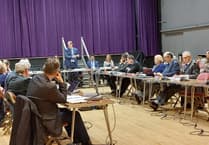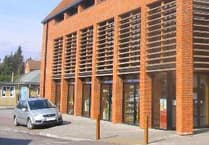HAMPSHIRE County Council has agreed to install a dedicated officer in Trading Standards to work exclusively on reducing fly-tipping.
The officer will focus on improving reporting and intelligence to increase prosecutions, as well as promoting ways the public can help.
Part of a new fly-tipping strategy, the decision to go ahead with the appointment was taken last Thursday during a decision day led by Rob Humby, the county council’s executive member for environment and transport, who said: “For too long, some people feel they have been able to get away with blighting the countryside while leaving the council taxpayer to pick up the bill. The majority of Hampshire’s residents have had to suffer from the actions of an irresponsible minority.”
The strategy focuses on three basic elements to reduce fly-tipping in Hampshire – enforcement, reporting and education.
Mr Humby said: “One of the major challenges in tackling fly-tipping is the range of organisations involved. This is why we’ve been working with our partners, including the police, all of the districts and borough councils across Hampshire, Southampton and Portsmouth city councils, the Environment Agency and rural associations, on a Hampshire-wide plan of action to show unscrupulous individuals that fly-tipping will not be tolerated.
“As well as improved reporting and enforcement, a key strand of this work will be co-ordinating with partner organisations to publicise a few simple steps that householders and businesses can take to have peace of mind that any waste taken away by contractors is being done so legally and responsibly, and doesn’t end up fly-tipped.”
Hampshire County Council has also opened up household waste recycling centres to small and medium-sized enterprises for the first time. This provides a legal and cost-effective place for businesses to recycle and dispose of waste.
The need to develop a new strategy to deal with what is described as “a significant problem” for Hampshire has been driven by escalating incidents and the associated cost.
In 2015/16, there were an estimated 8,131 incidents of fly-tipping reported in the Hampshire County Council area, with the county, district and borough councils spending an estimated £680,000 of taxpayers’ money on collecting, investigating and disposing of this illegally dumped waste.
These costs do not include those that will have been incurred by private landowners during the same period.
The most common place for those incidents that occurred on public land was on the highway (50%), on bridleways and footpaths (20%), and on council land (17%).
The type of material involved includes household, construction and commercial wastes. In terms of scale these are most commonly single item incidents (52%), the size of a small van load (18%), or the size of a car boot or less (17%).
The vision for the new strategy states that the aim will be to deliver “a future for Hampshire where we work together to ensure that all parties take responsibility for their waste, so as to bring about a significant reduction in the unacceptable social, economic and environmental harm caused by fly-tipping”.
The strategy will target illegal fly-tipping activities by “co-ordinating, supporting and enhancing the prevention, investigation and enforcement activities of partner organisations to tackle the problem and reduce the number of incidents in Hampshire.”
And it will be “delivered through enhanced partnership working and increased collaboration between all relevant bodies and organisations in Hampshire, to ensure the best outcome for our residents and businesses”.
According to the Department of Environment, Food and Rural Affairs (Defra), fly-tipping is considered “a significant blight on local environments, a source of pollution, a potential danger to public health, a hazard to wildlife, and a nuisance”.
“It also undermines legitimate waste businesses where unscrupulous operators undercut those operating within the law,” a Defra spokesman said.
It is a criminal offence that is punishable by a fine of up to £50,000 or 12 months in jail if convicted in a magistrates’ court.
The offence can also attract an unlimited fine and up to five years’ imprisonment if convicted in a crown court.
It is also one of the most common forms of anti-social behaviour which blights the countryside, is a threat to livestock and local wildlife, a source of pollution, a danger to public health, and attracts other forms of anti-social behaviour and environmental crime such as arson, littering, graffiti and dog fouling.
And it can affect both the tourism and inward investment potential of an area as well as the value of local homes.
The Defra spokesman continued: “The consequence of fly-tipping is not only a significant risk to local communities but also a considerable draw on valuable local authority budgets and other responsible bodies’ resources which could be better directed elsewhere, as well as a cost to private landowners.”
The delivery of Hampshire’s new fly-tipping strategy will initially be financed by Hampshire County Council’s economy, transport and environment department through the recruitment of a two-year, fixed-term post.
The fly-tipping resource will cost an estimated £50,000 per year, with the officer expected to be in the role in April.




